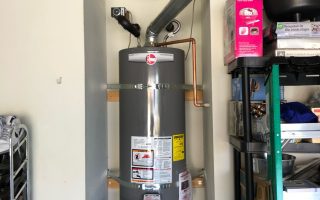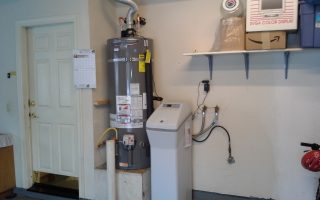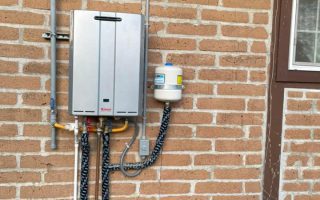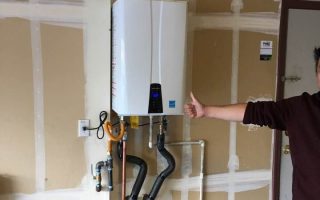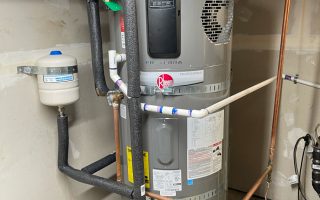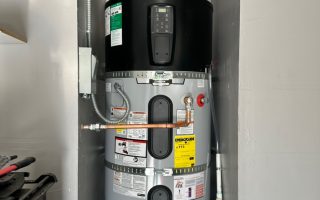Are you ready to embark on a watery adventure in search of the perfect water heater for your home?
Brace yourself as we dive into the depths of decision-making, where every choice ripples with consequences. Picture a vast ocean of water heaters, each one a unique creature with its own set of powers and quirks. Your mission, should you choose to accept it, is to select the one that will satisfy your hot water desires. But fear not for I shall be your trusty guide on this quest. Together, we shall navigate the treacherous waters of water heater types, fuel sources, environmental impacts, and water-wielding capabilities. Armed with this knowledge, you will emerge victorious, equipped with a water heater that shall bestow upon you a steady stream of toasty hot water for years to come. So, grab your goggles and let’s plunge into the watery depths of water heater wisdom!
Conventional Storage Tank Water Heater:
· This is the most common type of water heater found in homes.
o Pros:
§ Relatively low upfront cost.
§ Wide range of sizes available to meet your household’s hot water demands.
§ Simple installation process, as it typically replaces an existing tank.
o Cons:
§ Limited hot water capacity since it depends on the tank size.
§ Continuous heating may lead to standby heat loss, resulting in higher energy consumption.
Tankless Water Heater (On-Demand Water Heater):
· Instead of storing hot water, tankless heaters heat water as it flows through the unit.
o Pros:
§ Energy-efficient because they only heat water when needed, reducing standby heat loss.
§ Endless hot water supply as long as the demand does not exceed the unit’s flow rate.
§ Space saving design as they are compact and can be wall-mounted.
o Cons:
§ Higher upfront cost compared to conventional storage tank heaters.
§ Installation might require additional modifications due to specific venting and gas/electricity requirements.
§ Flow rate limitations can cause a decrease in water pressure if multiple hot water outlets are used simultaneously.
Condensing Water Heater:
· Condensing water heaters are a type of tankless water heater that utilize advanced technology to achieve higher energy efficiency.
o Pros:
§ Excellent energy efficiency: Condensing water heaters extract heat from flue gases that would typically be lost in conventional tankless heaters, making them highly efficient.
§ Lower energy costs: Due to their high efficiency, condensing water heaters can result in significant energy savings over time.
§ Environmentally friendly: The reduced energy consumption helps to lower greenhouse gas emissions.
§ Continuous hot water supply: Like other tankless models, condensing water heaters provide hot water on demand without the limitations of a storage tank.
o Cons:
§ Higher upfront cost: Condensing water heaters are generally more expensive to purchase and install compared to standard tankless or storage tank water heaters.
§ Installation requirements: These units may require specialized venting systems and modifications due to their condensation process, which can increase installation complexity and cost.
§ Maintenance considerations: The condensate produced by these units requires proper disposal and occasional maintenance to prevent clogs or leaks.
§ Limited availability: Depending on your location, the availability of condensing water heaters and access to natural gas or propane may vary.
Heat Pump Water Heater:
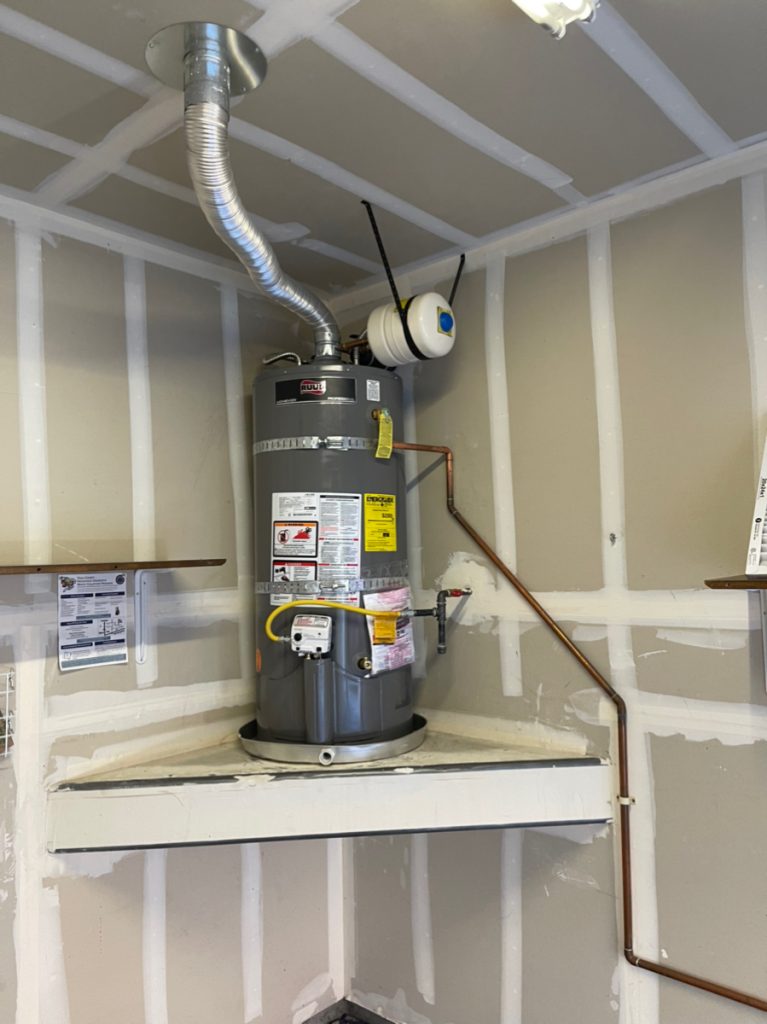
· This type of water heater extracts heat from the surrounding air to heat the water.
o Pros:
§ Extremely energy-efficient, as they use electricity to move heat rather than generating it directly.
§ Significant savings on energy bills over time, though the upfront cost is higher.
§ Cooling and dehumidifying effect in the space where they are installed.
o Cons:
§ Higher initial cost than conventional water heaters.
§ Requires a suitable location with enough space and good air circulation.
§ Performance can be affected by ambient temperature variations.
Solar Water Heater:
· Solar water heaters use the sun’s energy to heat water through solar panels or collectors.
o Pros:
§ Environmentally friendly and reduces reliance on traditional energy sources.
§ Long-term cost savings on energy bills once installed.
§ Greater Incentives such as tax credits or rebates may be available in some areas.
o Cons:
§ Higher upfront cost and initial investment for solar panels and installation.
§ Requires an adequate amount of sunlight and space for solar panels.
§ Backup system needed for cloudy days or high hot water demand.
When choosing a new water heater, consider the following factors:
1. Fuel Type: Determine the availability and cost of electricity, natural gas, propane, or solar energy in your area.
2. Size and Capacity: Assess your household’s hot water needs based on the number of occupants, daily usage, and peak demand.
3. Energy Efficiency: Look for ENERGY STAR-certified models that can provide substantial long-term energy savings.
4. Upfront and Operating Costs: Consider both the initial purchase price and the long-term operational costs, including maintenance and energy expenses.
5. Installation Requirements: Evaluate the space available, necessary venting, electrical or gas connections, and any additional installation considerations for each type of water heater.
6. Lifespan and Warranty: Compare the expected lifespan of different water heaters and review the warranties offered by manufacturers.
Ahoy, wise homeowner! As you embark on this water heater expedition, remember to seek guidance from the seasoned sailors of plumbing, the professional plumbers. These experts possess the knowledge and skill to assess your unique needs and steer you towards the smoothest installation voyage. Keep in mind that the compass guiding your decision is the careful consideration of your household requirements and budget. By charting your course

